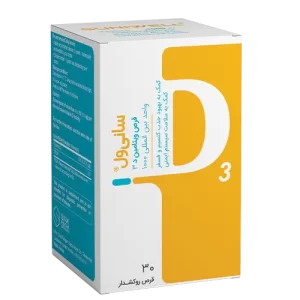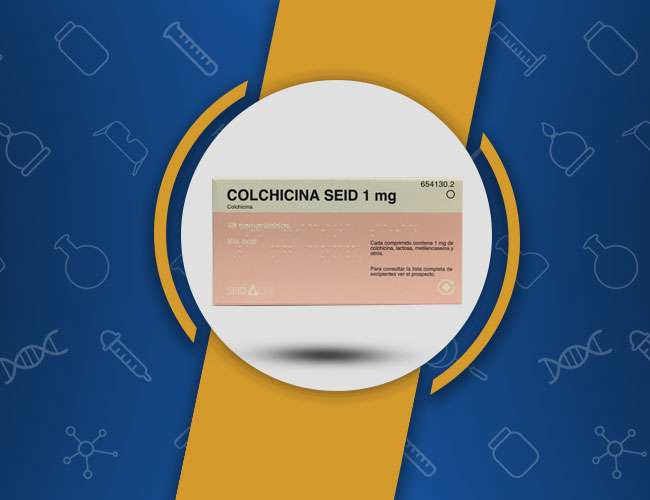
Vitamin D3 -1000 iu

Colchicine is used to relieve acute gout and also for the prophylaxis of acute attacks, especially in the first months of treatment with allopurinol or Uricosurics. Colchicine induces a significant therapeutic response in acute gout by reducing inflammatory reactions to urate crystals. This action is due to several drug actions, including reduced leukocyte motility. Colchicine is not analgesic and has no effect on excretion or blood concentrations of uric acid.
It also has antimiotic (anti-parasympathetic) effects
Other uses for colchicine include:
Amyloidosis, Behcet’s syndrome, familial Mediterranean fever, idiopathic purpurathrombocytopenia, pericarditis and primary biliary cirrhosis.
If this medicine is prescribed for you to treat acute gout attacks, start taking the medicine immediately, the effects of using it will be created within 12 hours.
– Gout:Prevention of activation, degranulation and migration of neutrophils (by inhibiting the polymerization of beta-tubulin in microtubules)
Mediterranean fever: Impaired interleukin-1β activation (with impaired inflammatory complex in neutrophils and monocytes)
The recommended starting dose in the UK is 1 mg and then 500 micrograms every 2 to 3 hours until pain relief or gastrointestinal side effects occur, but the total prescribed dose should not exceed 6 mg before the start. The re-treatment period requires at least 3 days of waiting. In the United States, the starting dose is usually 0.5 to 1.2 mg, followed by one or 1.2 mg every 2 hours, or 500 to 600 micrograms every 2 hours until pain or gastrointestinal side effects occur. Is prescribed. The maximum dose is 6 mg.
This drug is sometimes given intravenously at a dose of 1 to 2 mg over 2 to 5 minutes with additional doses of 0.5 or 1 mg every 6 to 24 hours if needed and up to a maximum of 4 mg in one Period and when higher doses are prescribed, the drug should not be prescribed in any other way for at least 7 days.
For short-term prophylaxis of gout, an oral dose of 500 or 600 micrograms is given 1 to 3 times a day. Prescription doses should be reduced in people with renal impairment.
This medicine is strictly forbidden during pregnancy. Colchicine is a group X medicine and may cause fetal death or organ failure.
Side effects of colchicine
Common complications (10% < 🙂
Digestive: Gastrointestinal disease, diarrhea, vomiting, nausea
Less common complications (10-1%):
Central nervous system: Fatigue, headache
Digestive: Cramps and abdominal pain
Endocrinology and metabolism: Gout
Respiratory: Sore throat.
Avoid taking colchicine with grapefruit separately, as it increases its serum level. Always take the medicine with a glass of water and be sure to drink enough fluids during the day.
Other Products